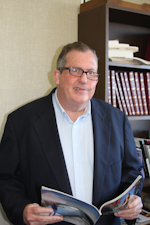Let’s start with a correction of sorts. In similar salary surveys for dental hygienists in recent years, the comments frequently focus on these three themes:
- Too many dental hygiene schools flood the market with graduates
- Pay scales are deteriorating for dental hygienists in some areas
- Hygienists are unable to find full-time employment or struggle to avoid reduced hours
Upcoming articles based on the RDH eVillage survey responses will focus on the first two points above. But that last point may require a correction of sorts. Only 21% of the hygienists indicated a preference to work more hours than they currently do. However, it is hard to ignore the comments from that fifth of the responses.
“I only work half or less of the hours that I used to,” a New Hampshire dental hygienist said. “The doctor does most of the prophys himself. Therefore, due to no other hygiene opportunities, I am forced to work nights and weekends at other jobs.”
-----------------------------------------------
Related articles
- Click here to participate in 2013 salary survey
- 2013 Dental Hygienist Job Benefits Survey - Part 3
- Some final thoughts about the fairness of pay raises awarded to dental hygienists
-----------------------------------------------
So who’s happy about the number of hours they work?
The experience level most contented, as well as least contented, with their work schedules are hygienists who graduated from dental hygiene school after 2000. Sixty-six percent believe their work schedule follows the “desired pattern” of hours scheduled, and 25% “prefer to work an additional one or more shifts a week.”
The percentages of hygienists with other experience levels indicated a desire for more hours as follows:
- Graduated in the 1960s or before: 7%
- Graduated in the 1970s: 18%
- Graduated in the 1980s: 20%
- Graduated in the 1990s: 23%
Hygienists who graduated in the 1980s recorded the highest percentage (16%) of those who would prefer to work fewer hours than they currently do.
But a 1980s graduate from California commented, “The doctors are doing more of their own hygiene, and hiring on a day-to-day basis as needed. No full time positions are available anymore, and too many hygienists in the area. Also, some practices are very busy, while others are struggling to fill a day of hygiene. Doctors are taking advantage of the hygiene community and not paying for a working interview day, or offering less daily salary, knowing someone will take the job anyway.”
Among hygienists with both an associate’s degree or a bachelor’s degree, 22% desire more hours. Perhaps a greater distinction occurs in work locations. Among hygienists who practice in metropolitan areas, 24% wish they worked more frequently, compared to 18% in rural areas. Specifically, hygienists in the Chicago area indicated the greatest desire to work more shifts (37%).
A Chicago hygienist noted, “Very difficult to find jobs in my area. I am underemployed due to tough economic times. The doctor’s schedule is slow, so he does many hygiene patients to keep his schedule busy.”
Among hygienists who reported an annual income of less than $55,000 a year, 30% desire more hours. Only 9% of hygienists who report an income of more than $55,000 want more work.
Nineteen percent of hygienists who work in a commission-based job desire more work; 66% expressed content with the hours worked per week.






